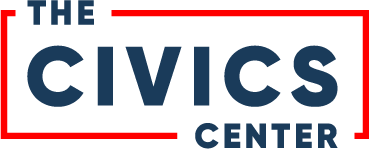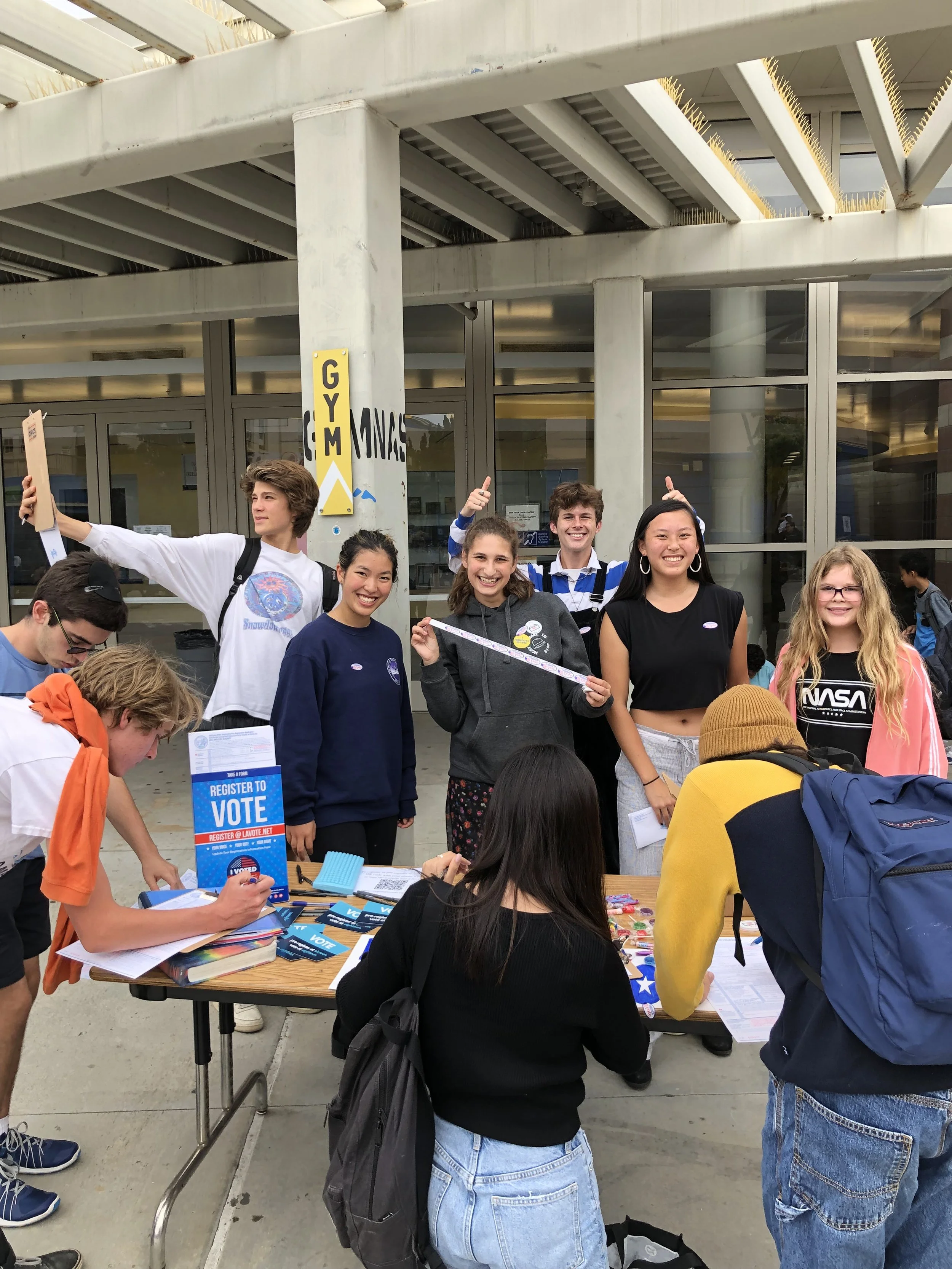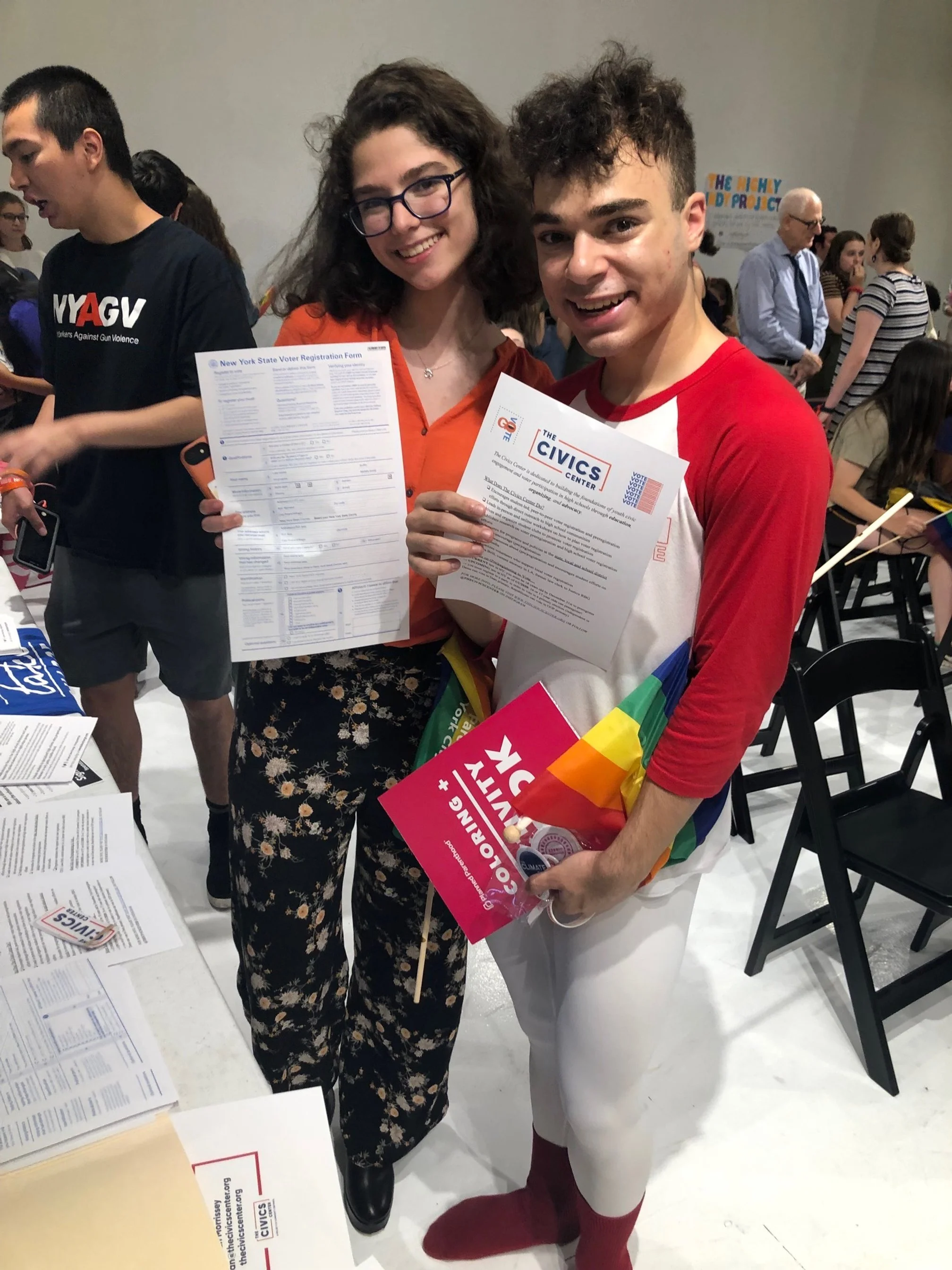
Core Values
At The Civics Center, we have a clearly defined ethos and a unique approach to the challenge of high school voter registration.
1. YOUNG PEOPLE ARE NOT APATHETIC
Low turnout figures say more about registration barriers than about young people.
Young people care about their communities and the health of the world, but only 6% of them are asked to register in high school. Preregistration was developed as a way to give new voters more time, so The Civics Center seeks to use those years before voting to welcome them and instill a lifelong interest in voting and good citizenship.
Democracy is something to be celebrated, and new voters should be welcomed, not discouraged. The Civics Center has seen the results; kids who run voter registration drives in high school are so proud of their work!
2. REGISTRATION IS NON-PARTISAN
This not a political activity.
We do not support or oppose any candidate or party. In terms of issue advocacy, we see ourselves as part of the wider effort to fight voter suppression and support democracy, and we help youth organizers focus on a broad array of issues that speak to them personally: from climate to racial justice to gender equity and gun safety. Incorporating nonpartisan voter registration into their activism helps empower their efforts.
3. RESEARCH IS KEY
Data guides our work.
We create and use data-based methods to reveal where engagement is lacking, and to measure our impact. We track and publish hyper-local, age-specific data that motivates stakeholders and fosters accountability. We issue detailed reports to help educators, community groups, and school districts improve their programs and policies.
4. THE YOUTH VOTE IS NOT A MONOLITH
The Civics Center works exclusively with high school students.
College voter registration programs, which are greatly needed, are not designed to reach high school students, who are involved in different educational organizations and are at a different time of life. Importantly, this is a matter of equity. A full 40% of high school students do not go on to college. They are often the most marginalized, low-income Americans. And college programs miss them entirely. Once they graduate and join the workforce, they become harder to find and thus more difficult to register.
Building this system at the front end is what will help it succeed, as new voters are a renewable resource.
5. DIVERSITY AND REACHING ALL OF GEN Z
Gen Z is more diverse than prior generations and our BIPOC youth are highly focused on democracy.
We are working to ensure that ALL parts of Gen Z are noticed; that everyone has the chance to lift their voice and that those generously donating to the work of The Civics Center know their donations are being used effectively to help create social justice and equality.
6. ON-SITE, RELATIONAL WORK
We are building voter registration drives into the infrastructure of the high school experience.
While online voter registration efforts are an important tool for youth registration, we believe working inside of schools is the strongest method to creating structural change. Registration and civic engagement are highly influenced by social environment and group affinity. Teens spend every day in high school, among trusted adults who can provide needed information and support. Students spend these years thinking about who they would like to become, and voting (like driving or getting a job) is a milestone reached on the journey toward adulthood.






